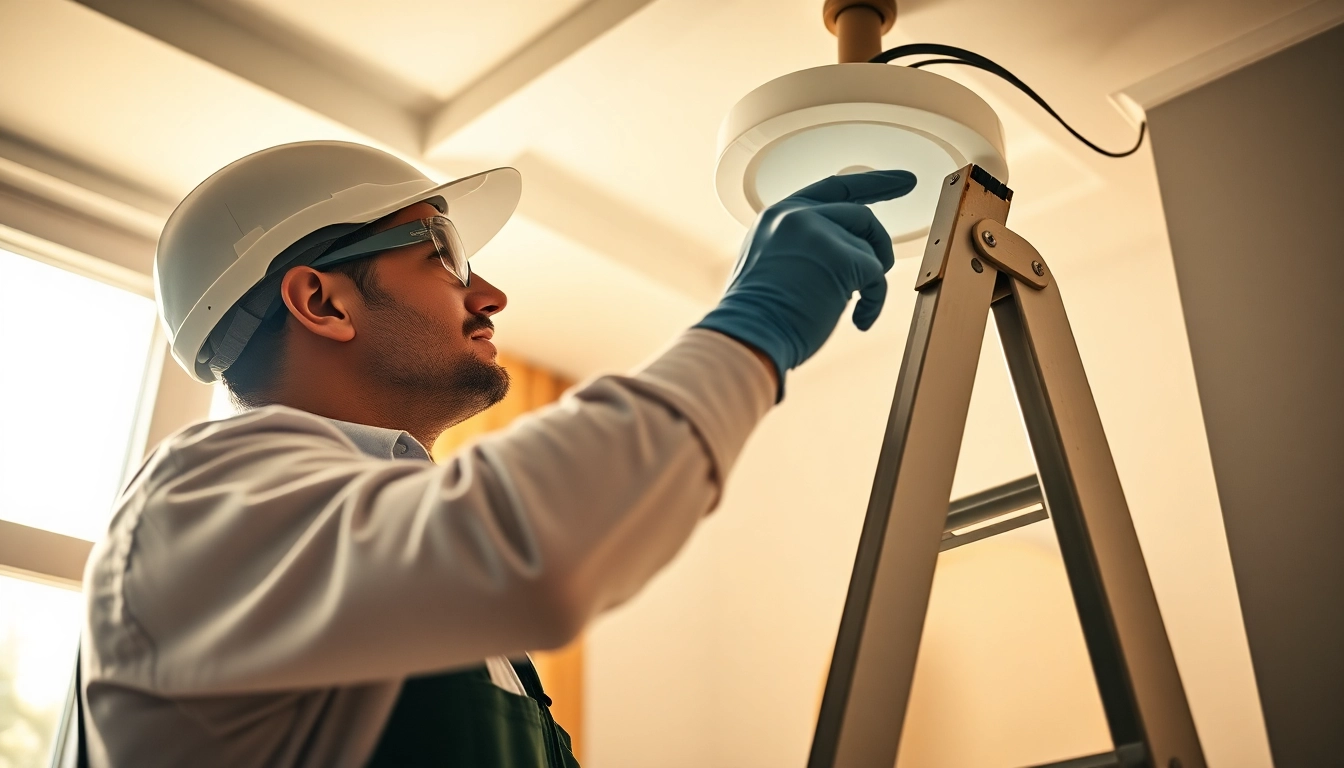What Does an Electrical Contractor Do?
An Electrical Contractor plays a critical role in the construction and maintenance industries. They are specialized professionals responsible for the design, installation, and upkeep of electrical systems in commercial, residential, and industrial settings. Their expertise extends from simple wiring projects in homes to extensive installations in complex commercial buildings.
Key Responsibilities of Electrical Contractor
The responsibilities of an electrical contractor are diverse and require a multifaceted skill set. Some of the core responsibilities include:
- Designing Electrical Systems: This includes creating blueprints that outline wiring and electrical system requirements according to safety standards and local codes.
- Installation of Electrical Systems: Once the designs are approved, contractors are tasked with the safe and effective installation of wiring, circuit breakers, and fixtures.
- Maintenance and Repairs: Regular checks and repairs on existing electrical systems to enhance performance and ensure safety fall under their purview.
- Compliance with Safety Standards: Ensuring that all electrical work meets state and national safety codes is crucial to safeguard lives and property.
- Project Management: From estimating project costs to supervising teams, managing timelines, and liaising with clients, contractors play a significant role in overseeing projects through to completion.
Types of Projects Handled by Electrical Contractor
Electrical contractors handle various types of projects that can be categorized broadly into:
- Residential Projects: This involves new home wiring, remodels, and upgrades of electrical systems to meet the homeowner’s needs.
- Commercial Projects: Contractors work on retail outlets, office buildings, and other commercial properties setting up extensive electrical systems that comply with business codes.
- Industrial Projects: These require the installation of larger systems that deal with machinery, high-voltage lines, and specialized equipment, often under strict regulatory standards.
- Maintenance and Emergency Services: Offering 24/7 services for electrical emergencies, repairs, and routine maintenance.
Licensing and Certification for Electrical Contractor
Becoming an electrical contractor involves obtaining specific licenses and certifications to demonstrate knowledge and competence. This typically includes:
- Journeyman License: A level that allows for a variety of tasks under the supervision of a master electrician.
- Master Electrician License: Represents a higher level of expertise that allows contractors to run their own businesses and take on larger projects.
- Specialized Certifications: These may encompass certifications in energy efficiency, renewable energy systems, and other advanced technologies.
- Ongoing Education: Staying updated with the latest codes, technologies, and safety practices is essential for maintaining licensure.
How to Choose the Right Electrical Contractor
Selecting the right electrical contractor is imperative to ensure project success, safety, and compliance. The following key factors should be considered:
Evaluating Credentials of Electrical Contractor
When selecting an electrical contractor, evaluating their credentials is crucial. Start by checking:
- Licenses: Verify that the contractor holds valid licenses as required by local regulations.
- Insurance: Ensure they have liability insurance and worker’s compensation to protect you from potential liabilities during the project.
- Certifications: Look for additional certifications that indicate advanced training and expertise in specific areas.
Understanding Pricing and Estimates from Electrical Contractor
Estimates can vary widely, and understanding pricing can prevent surprises down the line. When communicating with contractors:
- Request Detailed Quotes: Ask for itemized estimates that break down labor, materials, and any potential additional costs.
- Compare Estimates: Collect multiple quotes to understand the market rate and gauge which contractors offer competitive pricing.
- Inquire About Payment Terms: Understand when payments are due and whether they are contingent on specific milestones in the project.
Checking Reviews and References for Electrical Contractor
Once you have a shortlist of potential contractors, checking their past work is invaluable. To do this:
- Online Reviews: Research reviews on platforms such as Google, Yelp, or specialized trade websites to gauge customer satisfaction.
- Request References: Ask for client references and testimonials to gain insights into the contractor’s reliability and quality of work.
- Portfolio of Past Work: Review their previous projects to see if they have experience with your type of project.
Benefits of Hiring a Qualified Electrical Contractor
Engaging a qualified electrical contractor offers numerous benefits. Here are some essential advantages:
Safety Compliance and Code Adherence by Electrical Contractor
Safety is paramount when it comes to electrical work. Qualified contractors ensure:
- Code Compliance: They stay updated with national and local electrical codes, ensuring that all installations meet safety standards.
- Risk Mitigation: By adhering to safety protocols, they mitigate risks of accidents, which can result from substandard installations.
- Insurance Protection: Using licensed contractors protects you from liabilities due to accidents or damages associated with improper electrical work.
Quality Assurance in Work by Electrical Contractor
Quality work is non-negotiable when it comes to electrical installations. Benefits include:
- Reliability: Professional contractors provide evaluations and maintenance services that ensure long-term reliability of the electrical system.
- Meeting Specifications: They follow project specifications closely, ensuring the result is aligned with the client’s requirements.
- Warranty Offers: Qualified contractors often provide warranties for their work, giving clients peace of mind on the quality and durability.
Time Efficiency by Hiring an Electrical Contractor
Hiring an electrical contractor can significantly enhance project timelines, as they bring:
- Expertise: Their specialized knowledge allows for quicker identification of problems and efficient resolutions.
- Access to Tools: Contractors possess necessary tools and technology that improve execution speed and efficiency.
- Project Management Skills: Their experience ensures that projects stay on schedule, minimizing delays and cost overruns.
Common Mistakes When Hiring an Electrical Contractor
Ignoring Licensing Requirements for Electrical Contractor
Correct licensing is a fundamental requirement for any contractor. Skipping this step can lead to:
- Legal Issues: Unlicensed contractors may lack the right qualifications, exposing clients to legal liabilities.
- Insurance Complications: Many insurance policies require work to be performed by licensed professionals for coverage to be valid.
Underestimating Experience and Expertise of Electrical Contractor
Choosing a contractor should be based on experience and expertise, as this impacts:
- Quality of Work: Experienced contractors are better at troubleshooting and delivering high-quality workmanship.
- Professionalism: Those with substantial experience typically display better communication and professionalism throughout the project.
Neglecting Written Contracts with Electrical Contractor
A written contract is essential for protecting your interests. Key elements often missed include:
- Scope of Work: A clear scope laid out in the contract avoids misunderstandings regarding the project expectations.
- Payment Terms: Contractual payment terms protect both parties and clarify project milestones.
Future Trends for Electrical Contractors
The electrical contracting field is evolving rapidly due to technological advances and changing market demands. Several trends shape the future landscape:
Impact of Technology on Electrical Contractor Services
Technology is transforming how electrical contractors operate. Innovations include:
- Smart Technology Integration: Homes and buildings are increasingly incorporating smart systems, requiring contractors to adapt and specialize in technologies like smart lighting and home automation.
- Energy Management Systems: Contractors are now required to work with systems that optimize energy usage, reducing costs and environmental impact.
- Use of Drones and Robotics: These technologies aid in inspections and monitoring, increasing efficiency and precision in executing projects.
Sustainability Practices Adopted by Electrical Contractors
As the focus on sustainability grows, electrical contractors are adjusting their practices to include:
- Installation of Renewable Energy Sources: As solar and wind energy becomes more prevalent, contractors are increasingly engaged in installing and maintaining these systems.
- Energy-Efficient Solutions: Advancements in LED technology and energy-efficient electrical installations are now commonplace.
Emerging Skill Sets for Modern Electrical Contractor
The modern electrical contractor must develop new skills as the industry changes. Key emerging competencies include:
- Technical Skills in Emerging Technologies: Familiarity with IoT, energy storage systems, and smart grid technologies is becoming necessary.
- Project Management Skills: As projects grow more complex, strong project management skills are essential for successful execution.











Leave a Reply